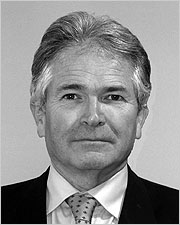Oliver Morley, a wealthy businessman trading as Morley Estates, recently brought a case against Royal Bank of Scotland (‘RBS’). He had built up a successful industrial warehousing company in the North West of England. In 2006 he used his property portfolio as collateral for a large £75m loan from the defendant Bank. The loan apparently included £15m – £20m for the personal use of Mr. Morley who was then aged 35 and single.
The loan was due to be repaid in 2009 but Mr. Morley was struggling to make the necessary repayments at that time and property values had fallen considerably. RBS moved the loan (and the business properties used as collateral) into their Global Restructuring Group (‘GRG’) which was supposed to be a ‘turnaround’ division of RBS.
The GRG was a controversial group and had been the subject of a number of claims alleging misconduct when transferring businesses into it, and their subsequent treatment within it. Although GRG now no longer exists, it had been alleged that customers businesses often failed as a result of the financial strain caused by additional demands enforced by GRG. More than 16,000 business customers were transferred to the GRG. Once businesses were in failure mode it was alleged that RBS further benefitted by selling on their clients’ failing businesses and properties to an RBS associated company, West Register.
Further, the Asset Protection Agency (‘APA’) has come in for criticism in that it purportedly unduly influenced decisions by the GRG. The APA was set up to operate the Asset Protection Scheme (government protection for over £280 billion of RBS’s financial assets against further losses by RBS during the financial crisis).
Mr. Morley decided to make a substantial claim in both tort and contract against RBS in 2017. He was advised to claim in the region of £30m in damages after his company suffered losses as a result of the loan and an associated £49m interest rate arrangement also from around 2006. He later had leave to amend his pleadings to include West Register. The main tenet of his claim was that he had been put under “unlawful and illegitimate pressure” to transfer his assets to RBS’s West Register company and that RBS had not discharged their duty to act with reasonable care and skill towards him as their client. As a result of that transfer, RBS’s own financial position was substantially improved and was not a move which had their client’s (Mr. Morley’s) best interests at heart. Mr. Morley had had an economically viable rescue package plan to re-finance much of the business, with the help of another bank, and that plan had been rejected by GRG on the advice of the APA. Evidence to support this was produced in court in the form of emails which revealed that the APA had vetoed RBS from supporting the plan. APA had wanted the properties to be sold to West Register.
All the world’s a stage, and all the men and women merely players: they have their exits and their entrances; and one man in his time plays many parts, his acts being seven ages.”
William Shakespeare
Mr. Justice Kerr considered all the evidence but found that Mr. Morley’s allegations of intimidation and economic duress could not be proven on the balance of probabilities. He said: “The bank’s duty of skill and care did not require it to negotiate the restructuring any differently from the way it did so.” He felt that Mr. Morley was a sophisticated customer in receipt of extensive professional advice, and that the bank had dealt with him in accordance with contractual agreement following a breach of covenant and in a manner that was rationally connected to its commercial interests. “He had worked hard to build up his business and he wanted to enjoy this new, albeit borrowed, personal wealth“. He had spent his personal portion of the loan on property, cars, a yacht, a jet and South African mining investments. None of these assets were very liquid when the economic downturn bit. None was put aside for a “rainy day“, and had he reserved £5m he might have been able to retain ownership of his property portfolio. The Judge dismissed the entire case.
An investigation by the Financial Conduct Authority in 2018 found that there were “widespread and systematic” problems at GRG but found no evidence that RBS artificially pushed viable companies into distress and no evidence of dishonesty by senior individuals.
One positive aspect of the trial outcome is that Mr. Morley’s allegations have prompted the Treasury to publish the accession agreement it signed with RBS when RBS entered the Asset Protection Scheme. It is expected to be made public soon.
ADDENDUM. At the Court of Appeal the case was revisited and the appeal by Mr Morely rejected on the basis that:
- Duty to exercise reasonable skill and care in providing lending services -The Court of Appeal did not accept that the Bank was under any implied contractual duty to exercise reasonable skill and care in negotiating the Restructuring Agreement;
- Duty to act in good faith – The bank had no such duty; and
- Intimidation and economic duress – The claimant argued that the High Court’s finding that he had not been coerced was wrong.
Link: Morley (t/a Morley Estates) v The Royal Bank of Scotland Plc [2019] EWHC 2865 (Ch) (22 October 2019)
Link: Morley v The Royal Bank of Scotland PLC [2020] EWHC 88 (Ch) (27 January 2020)
Link: Morley (t/a Morley Estates) v The Royal Bank of Scotland Plc [2021] EWCA Civ 338 (11 March 2021)
Expert Evidence prides itself on assisting throughout the legal process where required and is a professional firm concentrating on the four main areas of dispute resolution; acting as expert witnesses in financial litigation, mediation, arbitration and adjudication. The firm has a civil, criminal and international practice and has advised in many recent cases. Areas of specialisation include banking, lending, regulation, investment, and tax.
Ask a question about Expert Witness services. We are here to help!
Disclaimer: The above case summary is derived from publicly available information and is not intended to be anything more than a statement of the author’s views on the salient factors of the case. It is not intended and should not be understood to be legal advice of any sort. All views are solely those of the author and no use of the summary should be made without statements being checked against the source of information. Expert Evidence Limited takes no responsibility for the views expressed. The copyright of the summary is owned by Expert Evidence Limited but may be used with written permission which may be forthcoming on application through the contact us page. This news item is not intended to imply or suggest that Expert Evidence Limited was involved in the case, only that it is considered an interesting legal development.


















